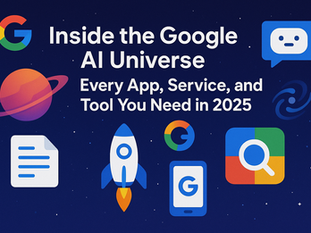
The AI Ethics Minefield: 5 Critical Controversies Defining 2025
0
2
0
Artificial intelligence (AI) is no longer a futuristic concept; it's a present-day reality that's evolving at a staggering pace. As AI systems become more powerful and deeply integrated into our daily lives, we find ourselves navigating a treacherous ethics minefield. From the future of work to the very nature of truth, the debate around AI ethics is raging. Here are the five most significant AI controversies that will shape the technological and societal landscape of 2025.
1. Algorithmic Bias: How AI Amplifies Discrimination
One of the most urgent ethical challenges in AI is the issue of algorithmic bias. AI models learn from the data they are trained on, and if this data reflects existing societal prejudices, the AI will not only replicate but also amplify them. This creates a dangerous feedback loop, where biased data results in discriminatory AI, which in turn reinforces and perpetuates systemic inequality.
We are already witnessing the real-world consequences of AI bias. For instance, some AI-powered recruitment tools have demonstrated a clear gender bias, favouring male candidates due to historical data from male-dominated industries. In the realm of law enforcement, predictive policing algorithms have come under fire for disproportionately targeting minority communities, raising serious concerns about fairness and civil rights.
The challenge for 2025 is to develop robust methods for bias detection and mitigation to ensure that AI serves as a tool for equality, not a catalyst for further division.
2. The Reality of AI Job Displacement
The fear of AI and job displacement has been a recurring theme, but in 2025, it's a reality that is impacting a growing number of professions. While AI is creating new roles in fields like data science and machine learning, it's also leading to significant job displacement, particularly in roles that involve repetitive tasks. A recent report from the World Economic Forum highlights that AI is expected to displace millions of jobs globally in the coming years.

Sectors with a high volume of entry-level and white-collar jobs are feeling the impact most acutely. Tasks such as data entry, customer service, and even certain aspects of paralegal work and graphic design are now being automated by sophisticated AI systems. This shift is creating a critical need for large-scale upskilling and reskilling programs to equip the workforce for the jobs of the future and to ensure a just transition in the age of automation.
3. Data Privacy in the Age of AI: A New Frontier
Modern AI systems have an insatiable appetite for data. They require massive datasets to learn, adapt, and improve their performance. This has turned our personal data into an immensely valuable asset, raising significant data privacy concerns. The collection, use, and storage of our data by AI systems are often opaque, leaving many of us in the dark about how our information is being utilised.
The risks associated with this new data paradigm are substantial. Data breaches can expose sensitive personal information to malicious actors. Furthermore, AI itself can be weaponised for sophisticated cyberattacks, including the creation of highly personalised phishing campaigns and automated hacking attempts. As we move further into 2025, the development and enforcement of comprehensive data protection regulations, such as the GDPR, will be paramount to safeguarding individual privacy in an increasingly AI-driven world.
4. Generative AI and the Future of Human Creativity
The emergence of powerful generative AI models has ignited a passionate debate about the future of human creativity. On one side, AI is seen as a revolutionary tool that can augment the creative process, enabling artists, musicians, and writers to explore new frontiers of expression. On the other, there are legitimate fears that AI could devalue human creativity, leading to a homogenisation of art and culture, and even displacing human creators.
The rise of AI-generated art and music has brought to the forefront complex legal and ethical questions surrounding copyright and intellectual property. Lawsuits have already been filed over the use of copyrighted material to train generative AI models. As these technologies continue to advance, we will need to have a serious societal conversation about what it means to be creative and how we value human artistry in the age of artificial intelligence.
5. The Proliferation of AI-Generated Misinformation and Deepfakes
Perhaps one of the most immediate and alarming dangers of AI is its potential to fuel the spread of misinformation. AI can now generate highly realistic fake content, including text, images, and videos, that are almost indistinguishable from reality. These "deepfakes" can be used for a variety of nefarious purposes, from spreading political propaganda and manipulating public opinion to perpetrating fraud and damaging reputations.
We have already seen instances of deepfake technology being used to create false narratives and to impersonate public figures. As these tools become more accessible, the threat of large-scale, AI-powered disinformation campaigns becomes increasingly real. Combating this will require a multi-faceted approach, including the development of advanced deepfake detection technologies, a renewed focus on media literacy education, and a concerted effort from tech companies and policymakers to address the weaponisation of AI.
Final Thoughts
The five controversies detailed here represent just a fraction of the ethical challenges we face as we continue to develop and integrate AI into our society. The choices we make in 2025 will have a lasting impact on the future of artificial intelligence and its role in shaping our world. This is a conversation that requires the active participation of us all, from developers and policymakers to the general public.







